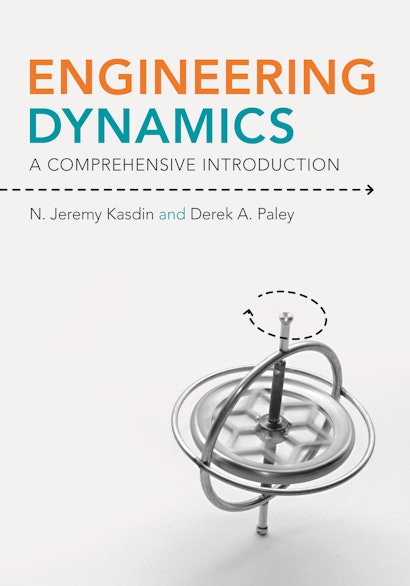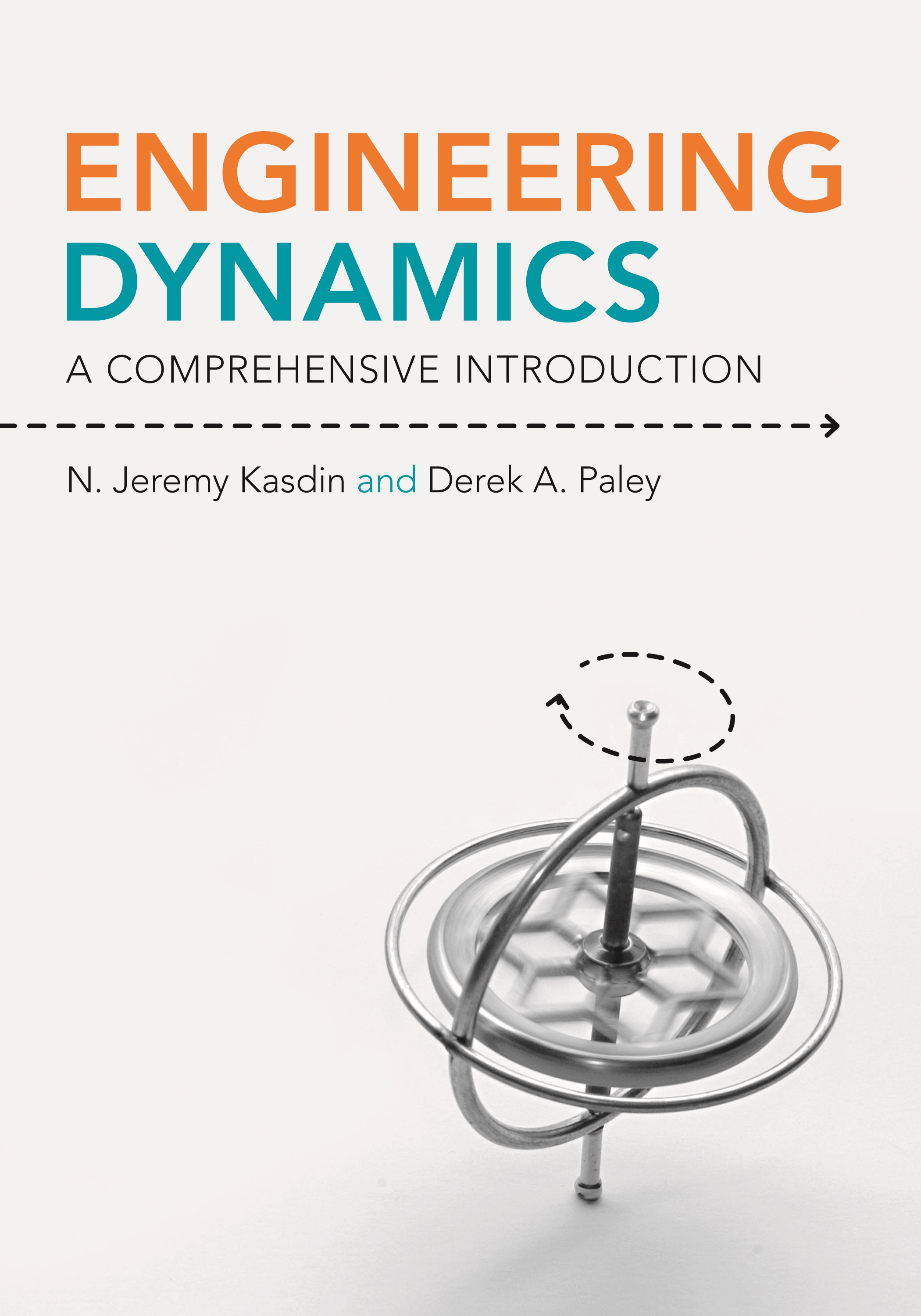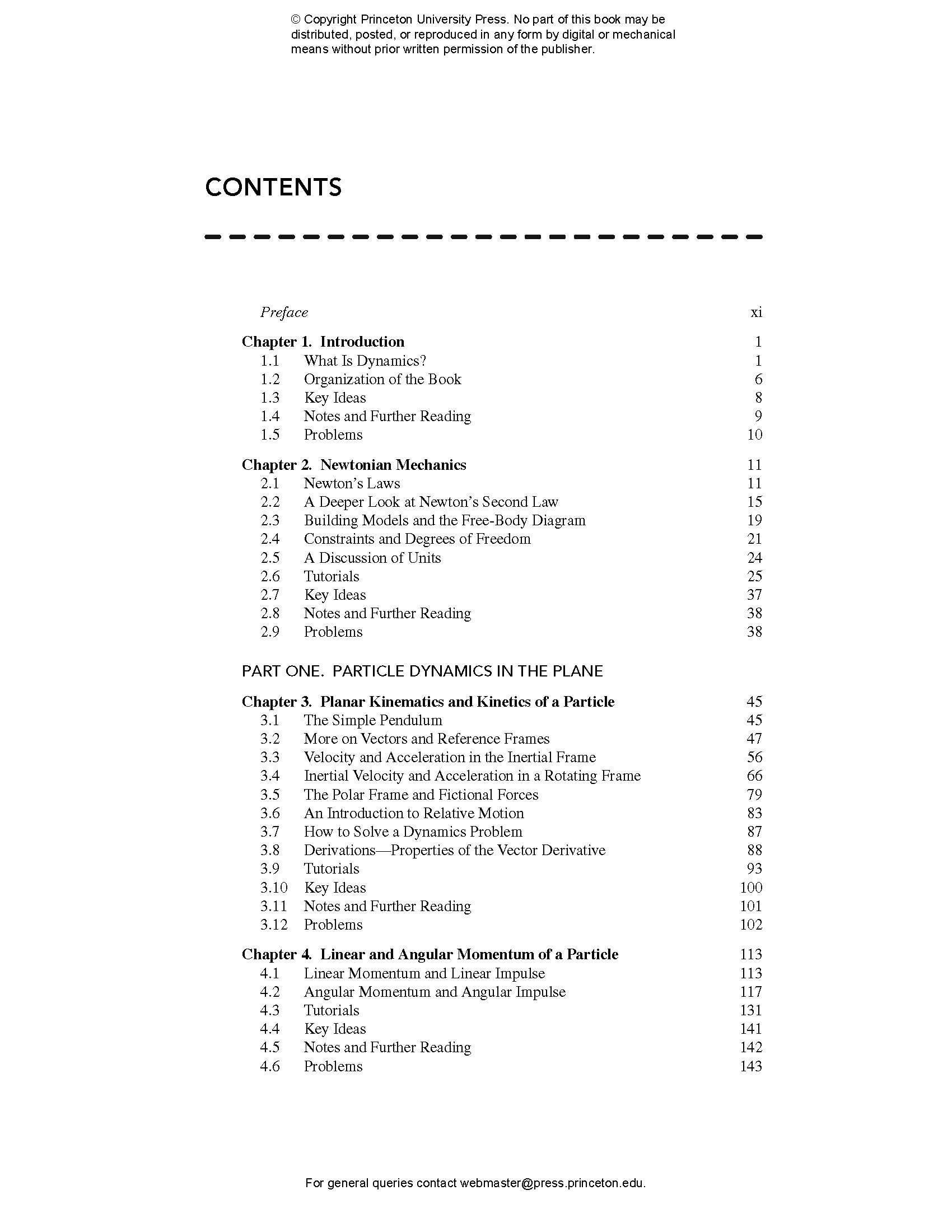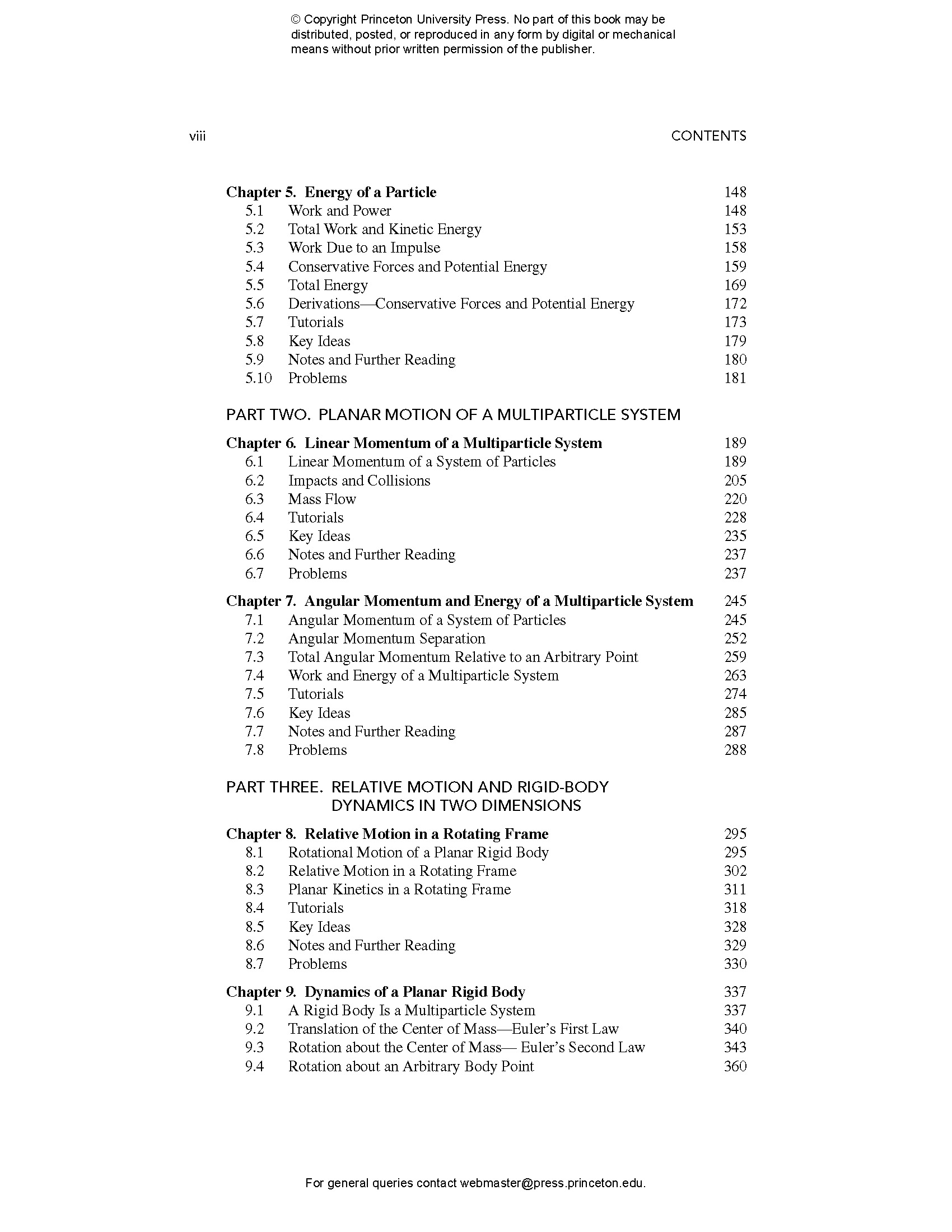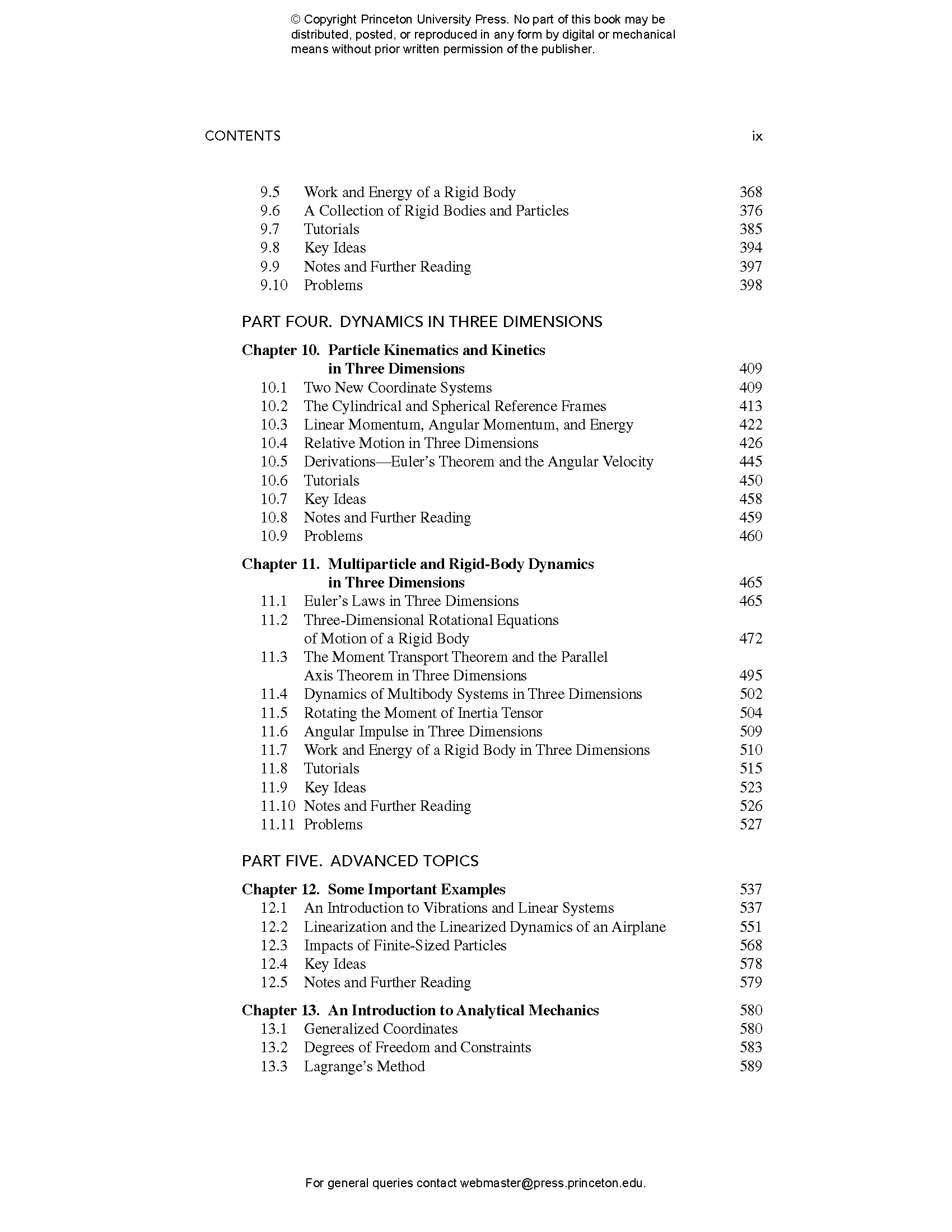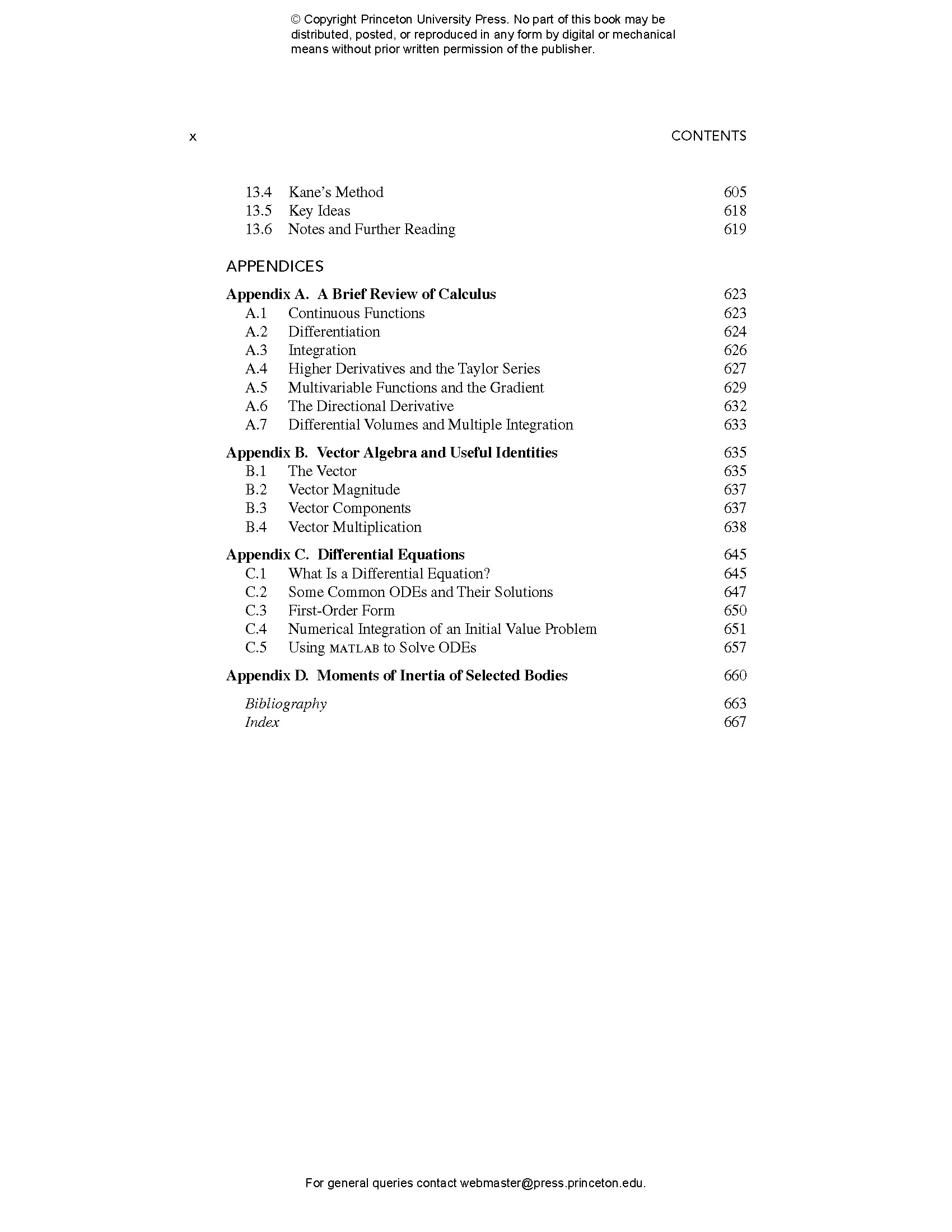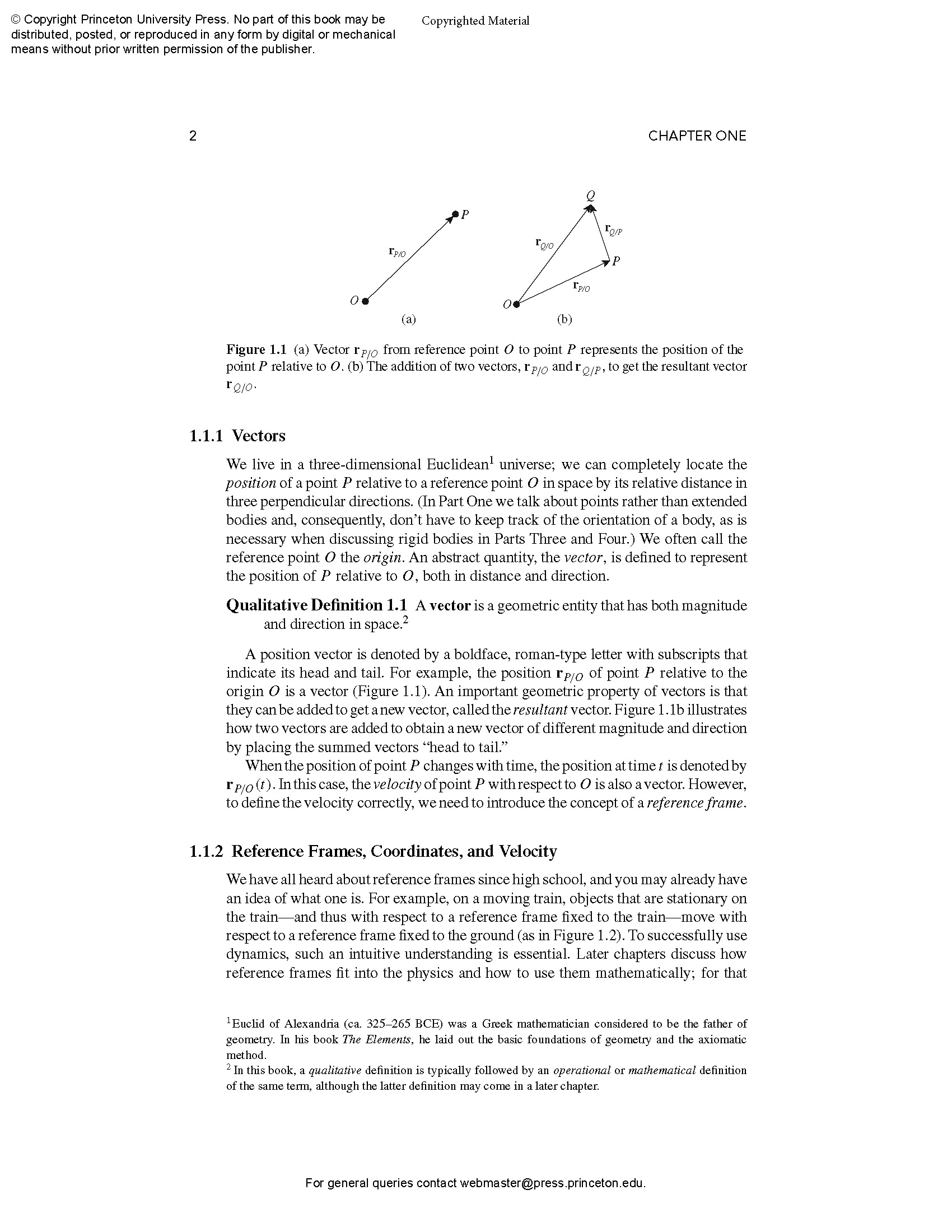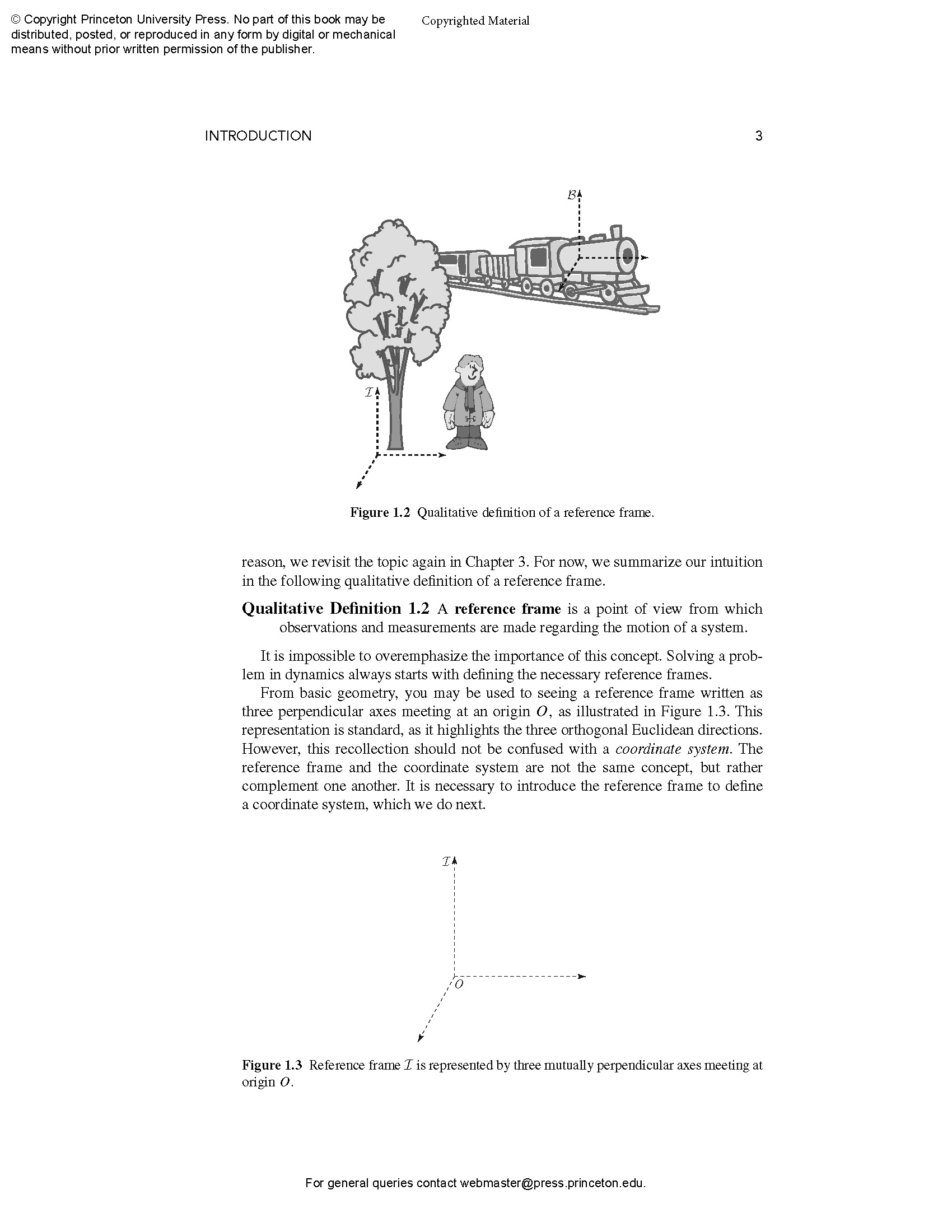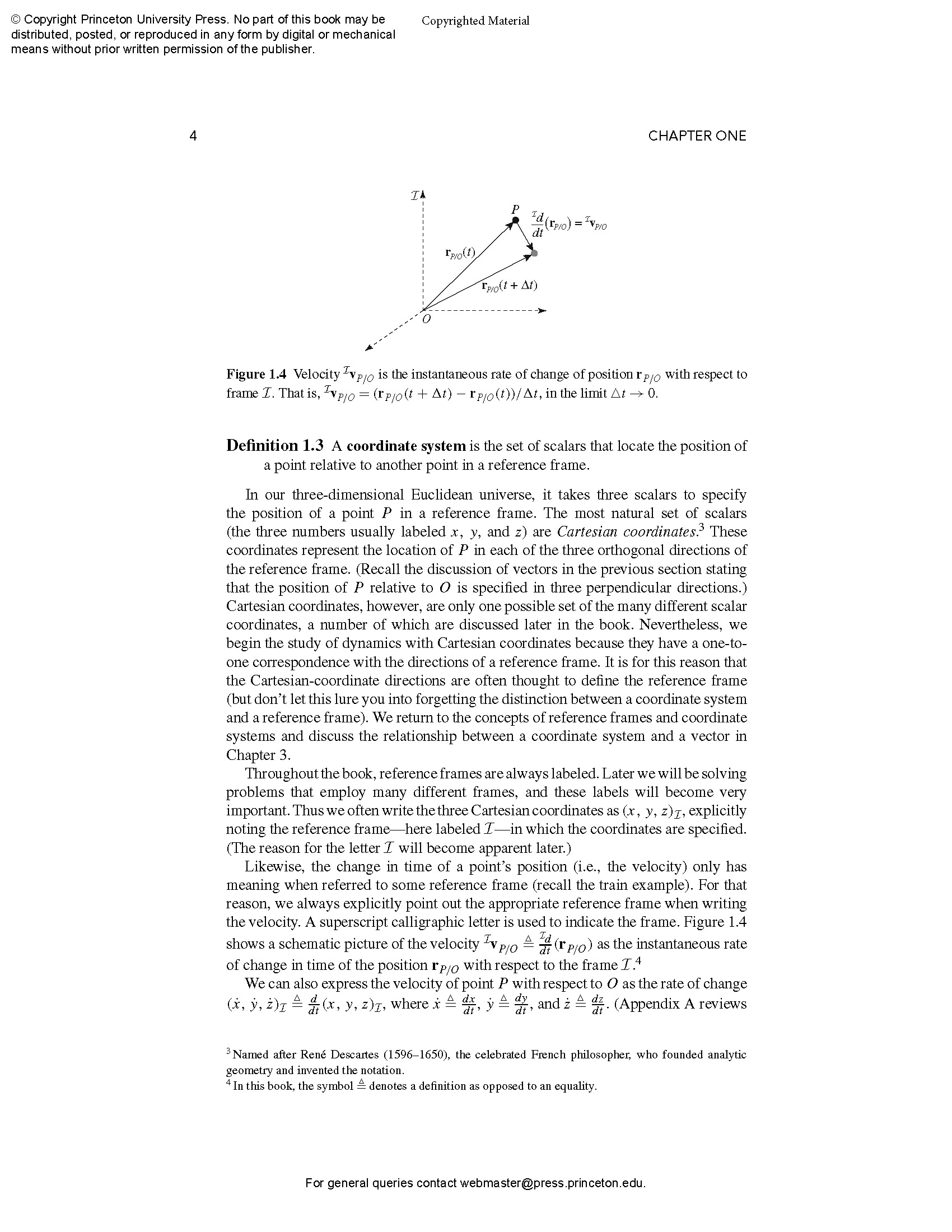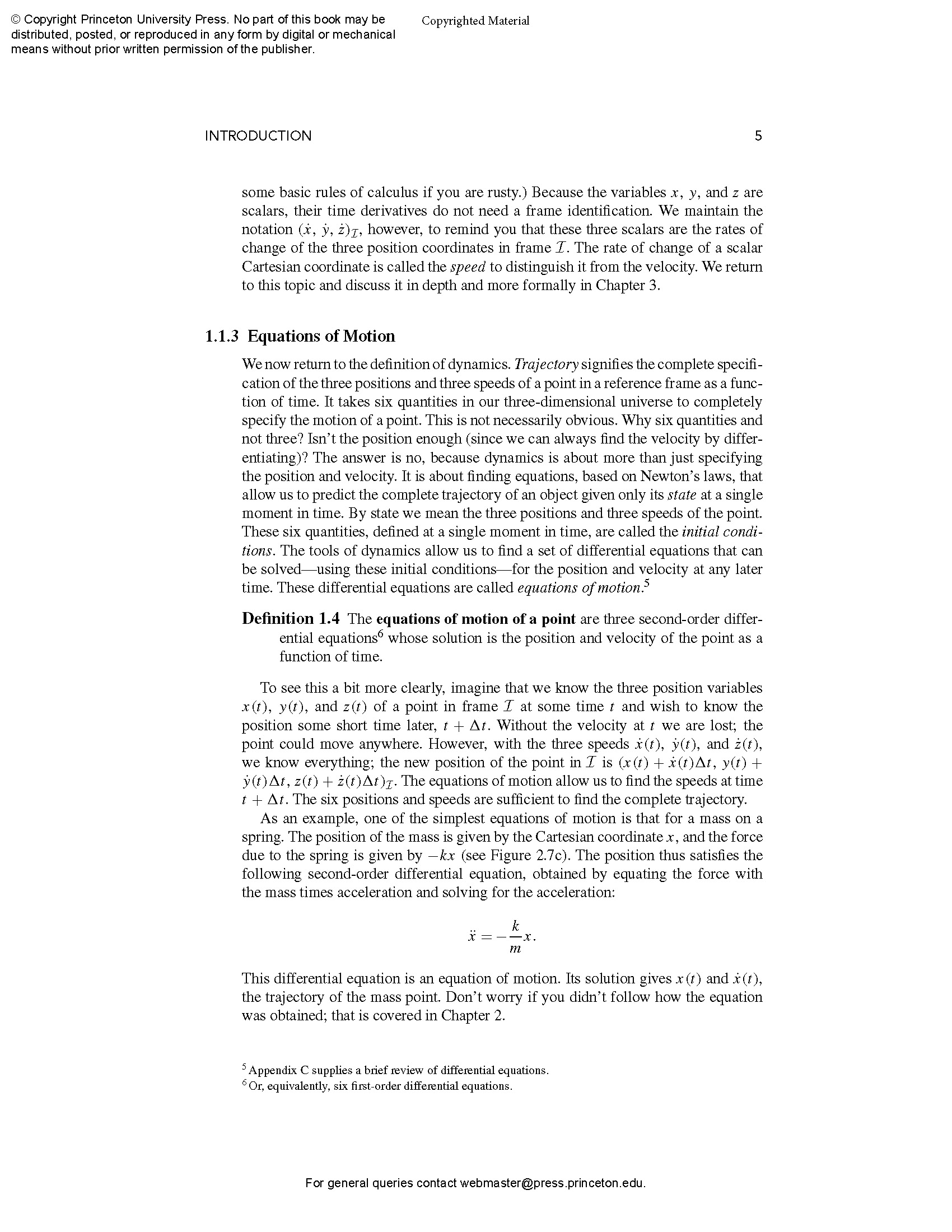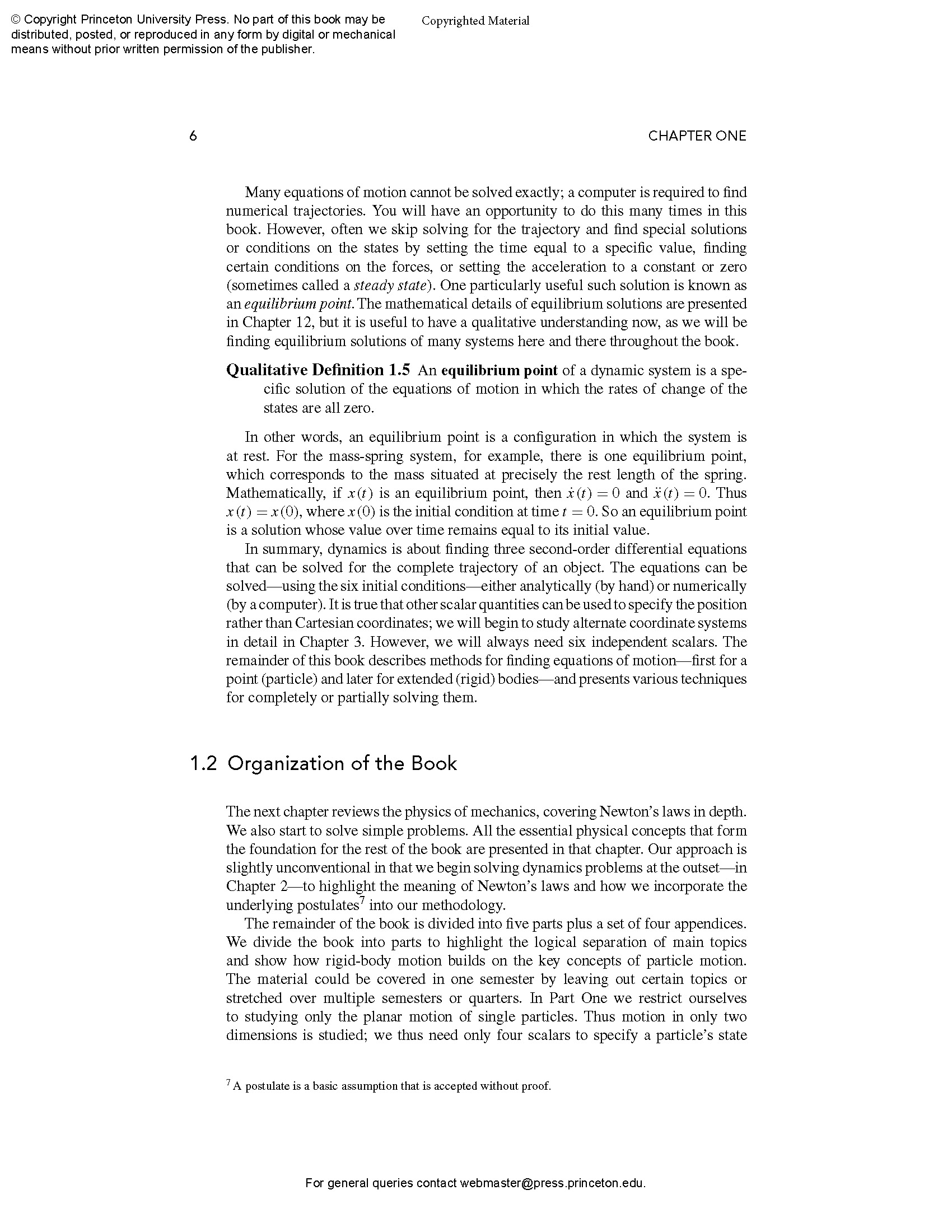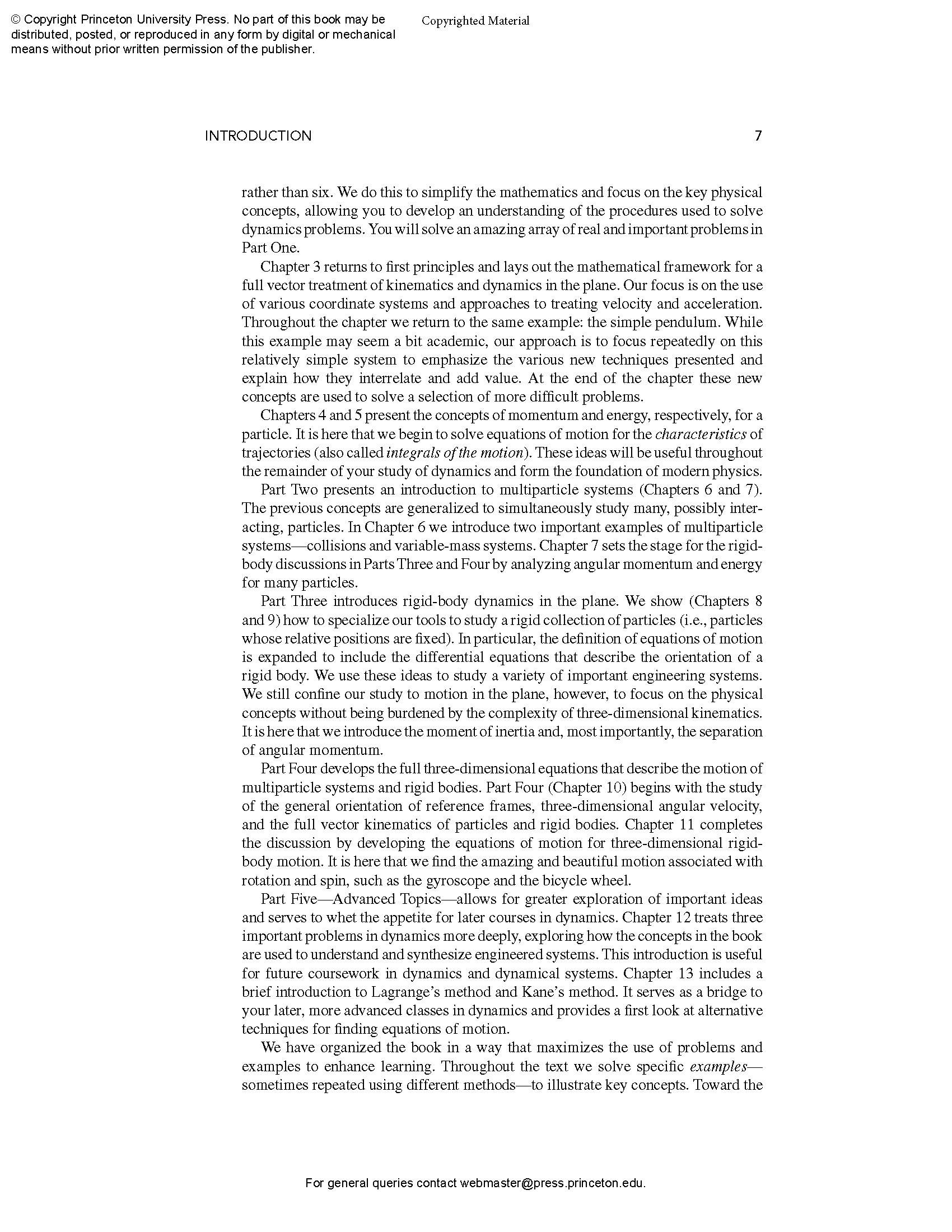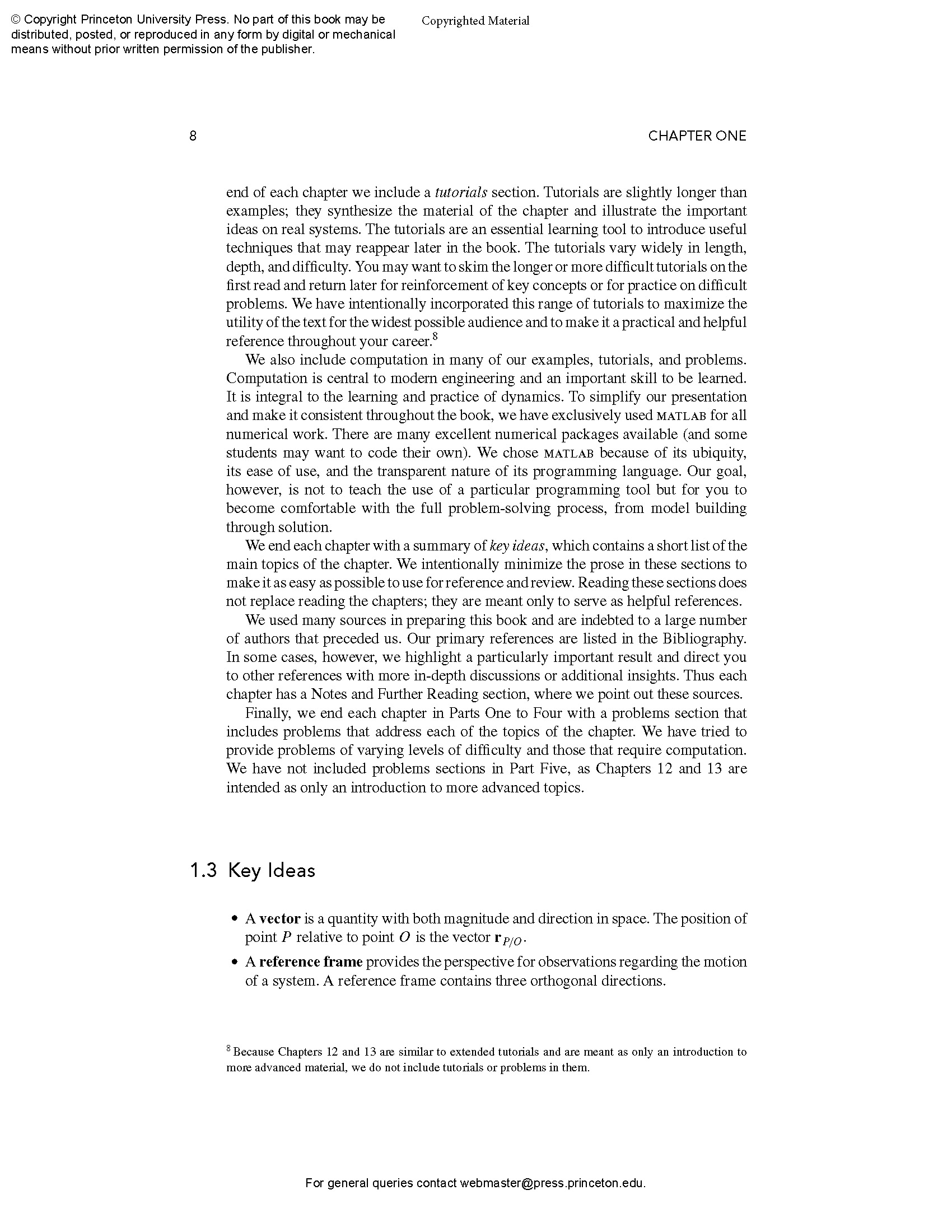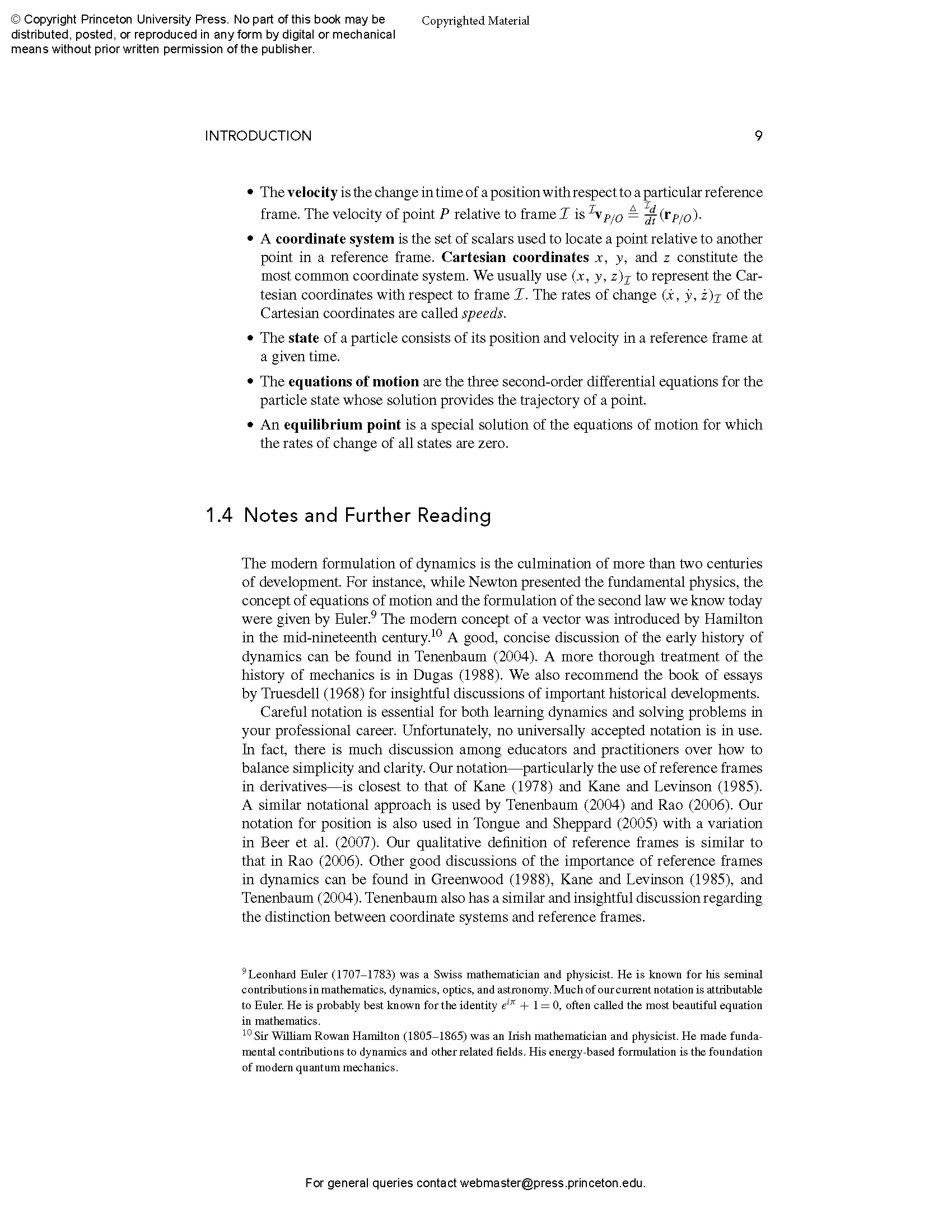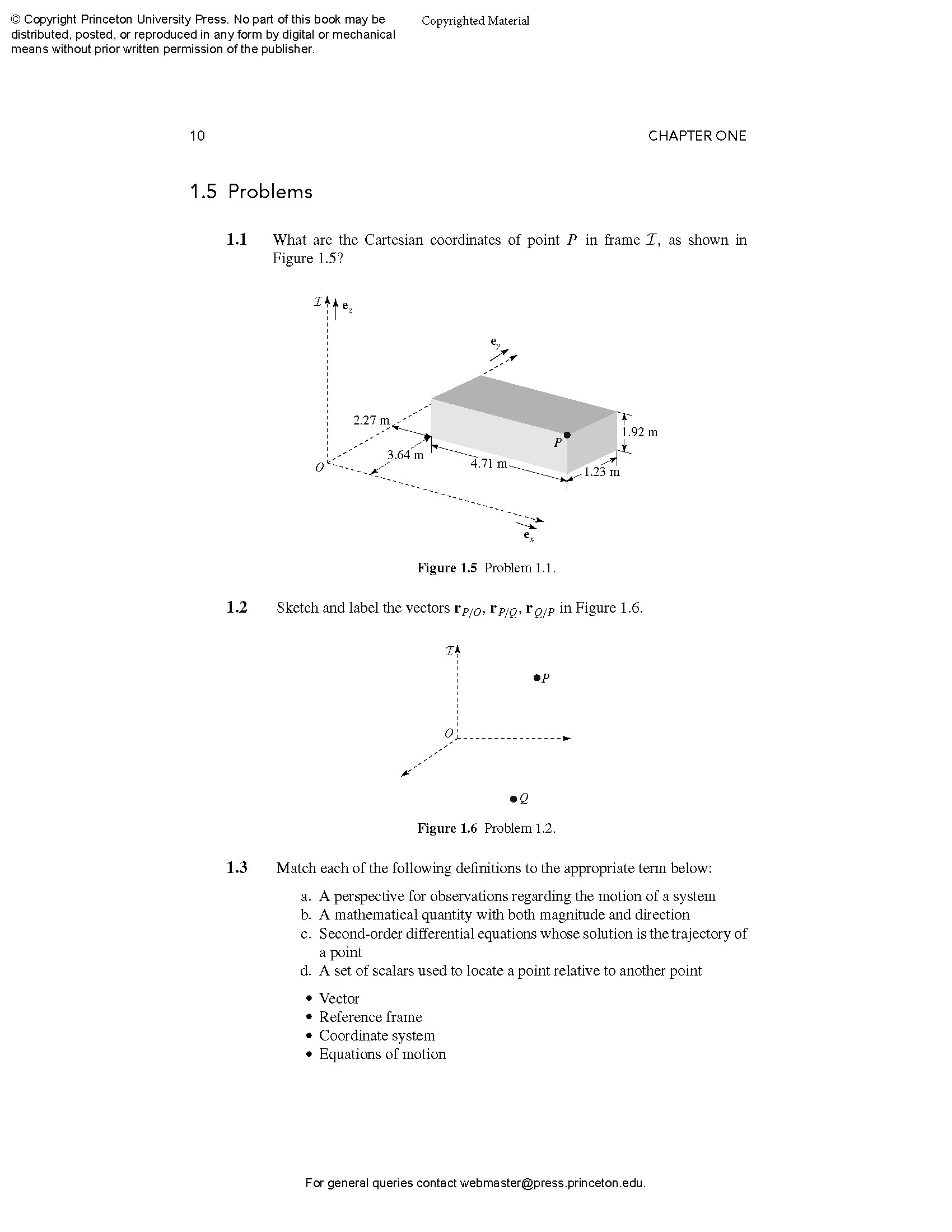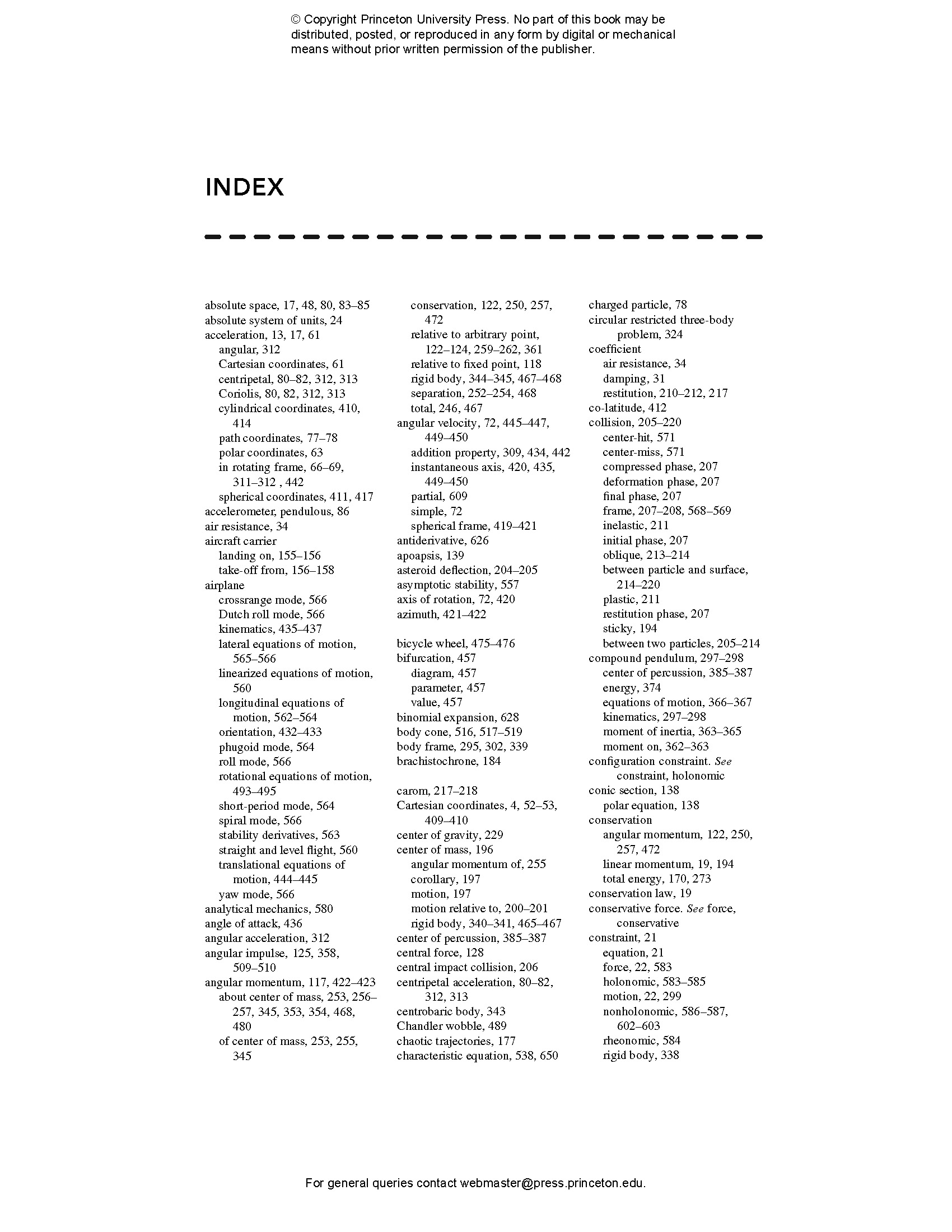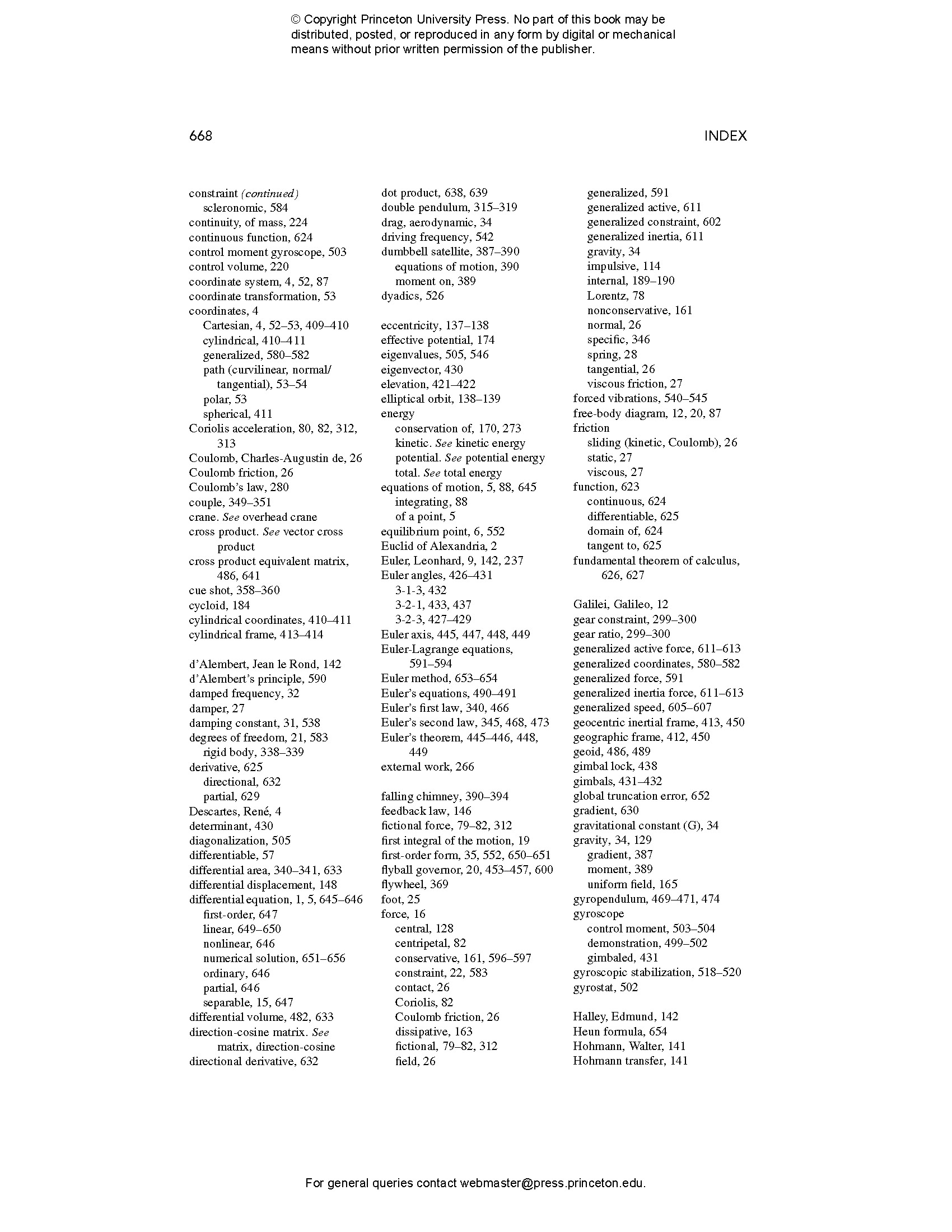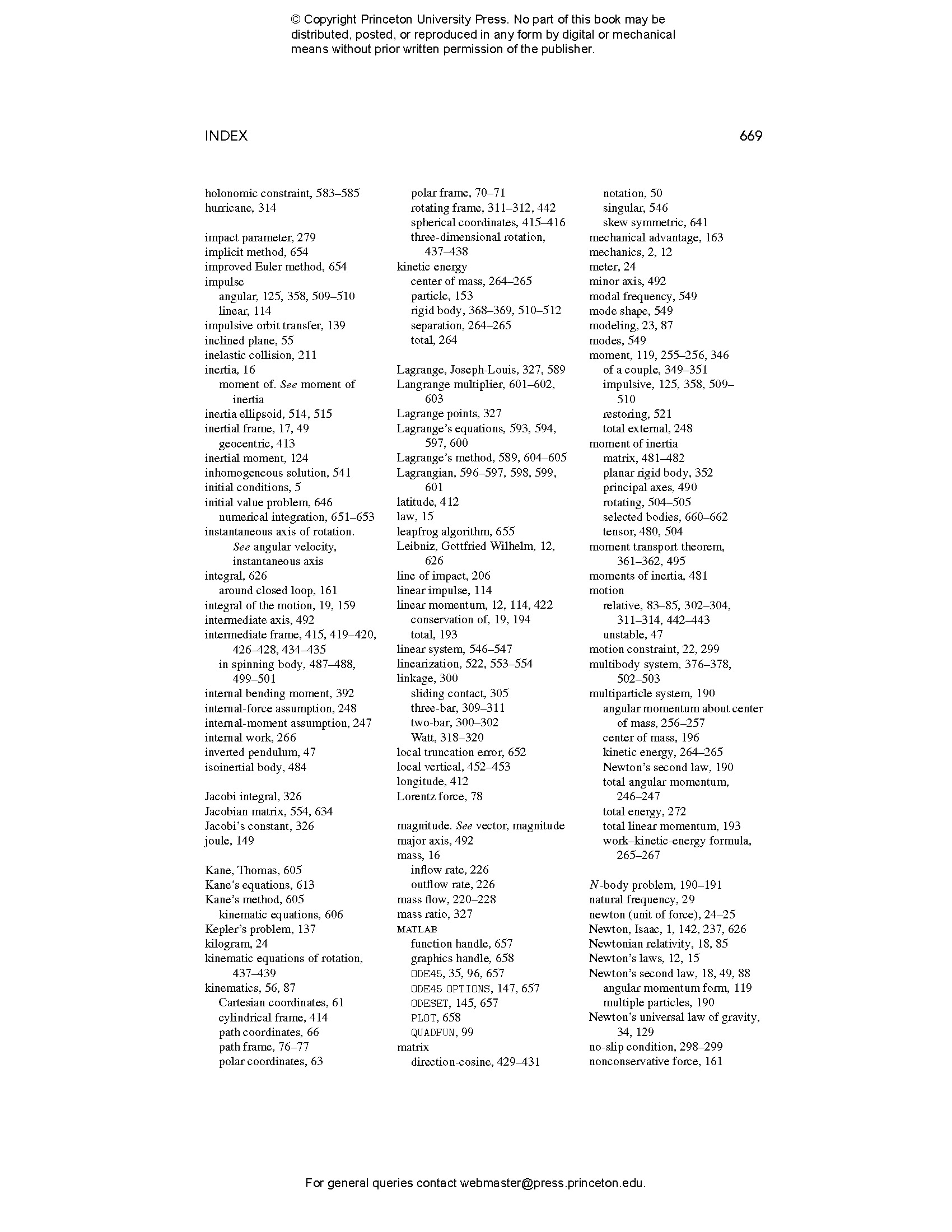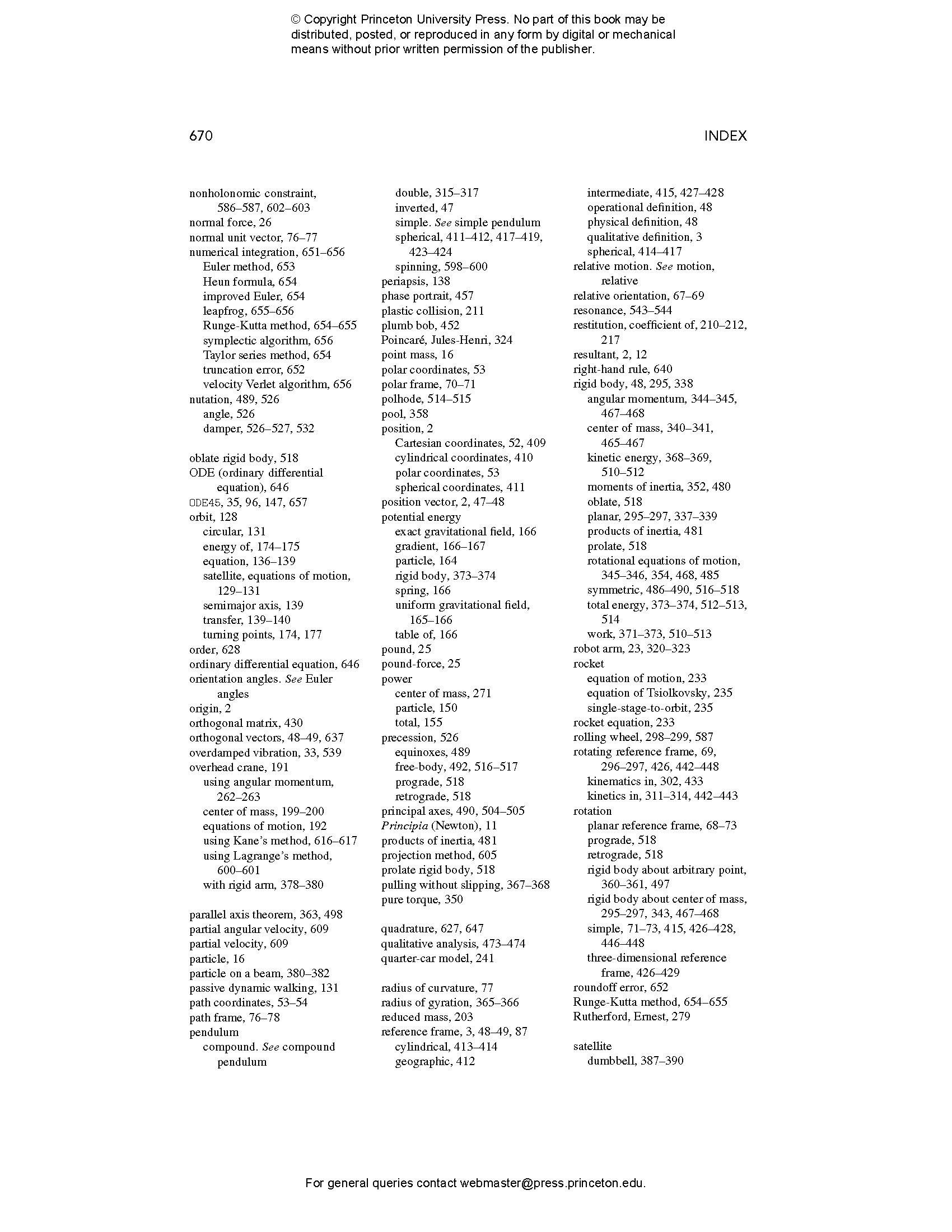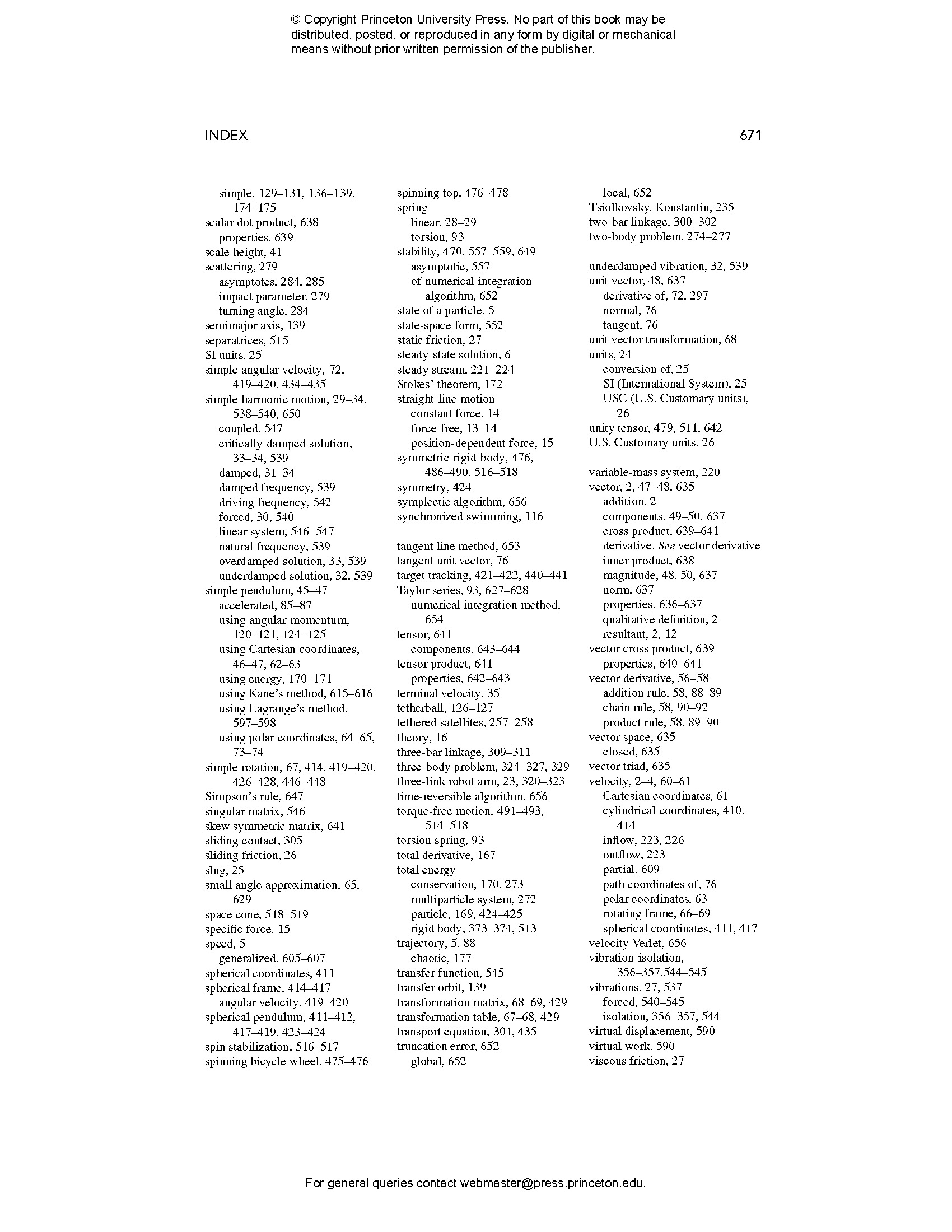This textbook introduces undergraduate students to engineering dynamics using an innovative approach that is at once accessible and comprehensive. Combining the strengths of both beginner and advanced dynamics texts, this book has students solving dynamics problems from the very start and gradually guides them from the basics to increasingly more challenging topics without ever sacrificing rigor.
Engineering Dynamics spans the full range of mechanics problems, from one-dimensional particle kinematics to three-dimensional rigid-body dynamics, including an introduction to Lagrange’s and Kane’s methods. It skillfully blends an easy-to-read, conversational style with careful attention to the physics and mathematics of engineering dynamics, and emphasizes the formal systematic notation students need to solve problems correctly and succeed in more advanced courses. This richly illustrated textbook features numerous real-world examples and problems, incorporating a wide range of difficulty; ample use of MATLAB for solving problems; helpful tutorials; suggestions for further reading; and detailed appendixes.
- Provides an accessible yet rigorous introduction to engineering dynamics
- Uses an explicit vector-based notation to facilitate understanding
Professors: A supplementary Instructor’s Manual is available for this book. It is restricted to teachers using the text in courses. For information on how to obtain a copy, refer to: https://press.princeton.edu/class_use/solutions.html
N. Jeremy Kasdin is professor of mechanical and aerospace engineering and lead investigator for the Terrestrial Planet Finder project at Princeton University. Derek A. Paley is assistant professor of aerospace engineering and director of the Collective Dynamics and Control Laboratory at the University of Maryland.
"Engineering Dynamics: A Comprehensive Introduction targets students who are taking an introductory course in dynamics. The authors' stated intent is to provide a clear, rigorous, and complete view of the fundamentals of Newtonian dynamics, emphasizing a deep understanding of the concepts and the mathematics behind them. The result is a book that covers ample topics of engineering dynamics in a structured, detailed, and systematic manner. . . . [The] appendices provide a quick and easy way to review the main concepts and mathematical tools used in solving dynamics problems. . . . Adding to the nice reading, the notation used throughout the book is clearly described. It is consistent and easy to understand; it also promotes a clear identification of the system of reference used. . . . Kasdin and Paley provide a sound mathematical approach in a modern and systematic manner. Engineering Dynamics is an outstanding book that presents an invigorating perspective on one of the most important topics in engineering, proving that, although 'dynamics is difficult,' it is nevertheless extremely important, and, with the right support, one can see that it is also beautiful."—Corina Sandu, Journal of Guidance, Control, and Dynamics
"There are few courses in the engineering curriculum that cause students more difficulty than rigid-body dynamics. By laying out the foundations of the subject with precision and clarity through unambiguous notation and rigorous definitions, Engineering Dynamics goes a long way toward remedying this situation. Numerous examples with motivating applications demonstrate the underlying ideas and solution techniques. This landmark text stands apart in the field, and will be welcomed by students and instructors alike."—Dennis S. Bernstein, University of Michigan
"Kasdin and Paley provide a thorough and rigorous introduction to engineering dynamics. They hit all the required topics, and also present material not normally addressed by an introductory text. This is an ambitious book and the authors carry it out well. It is in many ways better than almost all other comparable texts."—Geoffrey Shiflett, University of Southern California
